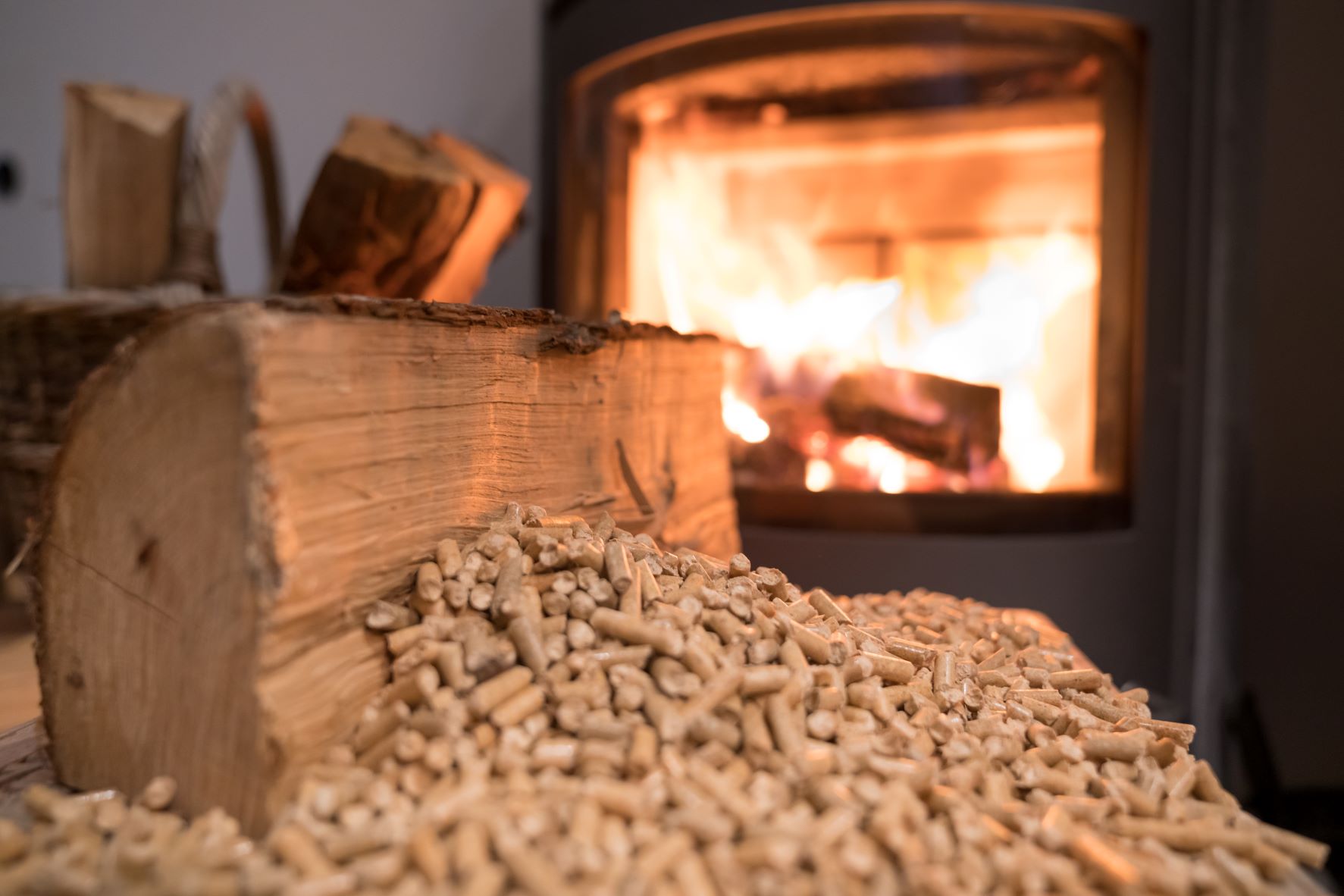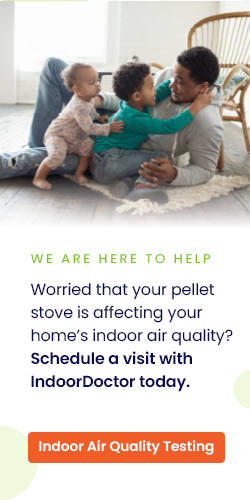A fireplace or stove is a fantastic way to add beauty and warmth to the home. In recent years, pellet stoves have grown increasingly popular as they allow for a more sustainable way to provide heating during the colder months. Unfortunately, pellet stoves are also known to emit a lot of pollutants into the air. Could your pellet stove be compromising your health?
Fast Facts About Pellet Stoves
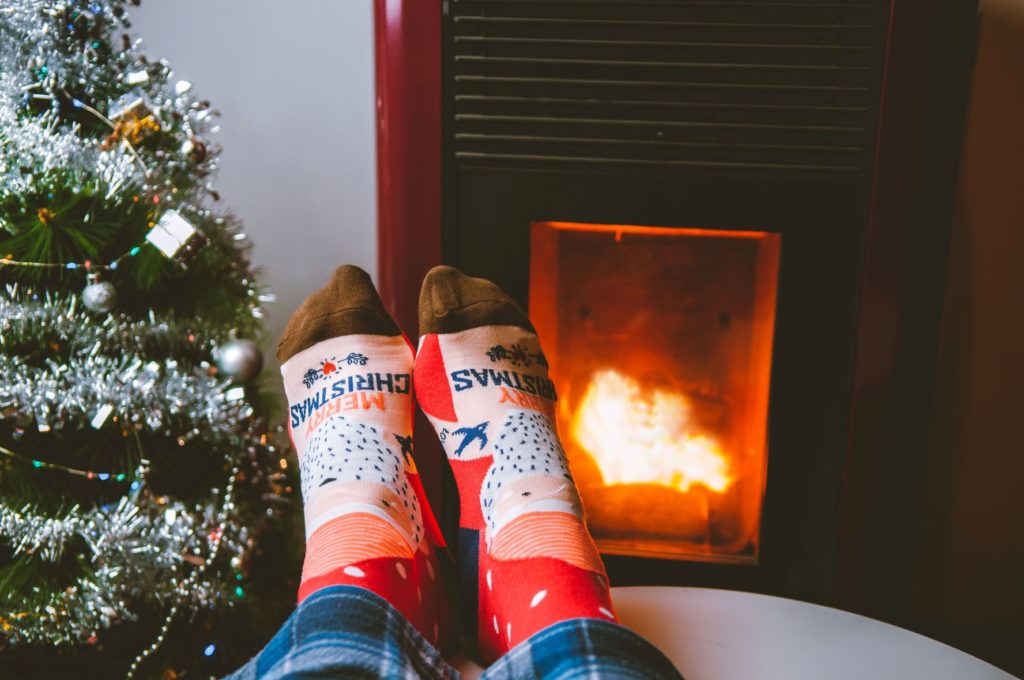
Pellet stoves are popular because they offer a fast, convenient way to build a fire for ambiance, light, and warmth. Unlike traditional wood-burning stoves, which demand seasoned firewood, pellet stoves only require specially designed wood pellets. Wood pellets are small biofuels and are typically produced by recycling other wood materials like sawdust and unused wood. While this method minimizes waste, it’s important to understand that wood pellet stoves can still produce harmful dust particles that can enter the air and cause harm to your health.
How Pellet Stoves Work

Pellet stoves are relatively simple contraptions, but knowing how they work will better help you to understand their potential risks. Pellets are poured into a storage compartment. From here, the stove will use its sensors to deliver pellets from the storage area into the burn chamber as it detects that more fuel is required. The stove only burns enough pellets to maintain a small but warming fire. Most pellet stoves use combustion blowers which work to draw outside air into the stove and blow out smoke via an exhaust vent. Although these vents can be quite effective, they aren’t perfect. Your home can still suffer from reduced air quality in these situations:
- Poor installation: If the vent system is not installed properly, large quantities of harmful particulate matter could be infiltrating your home each time you use your pellet stove.
- Frequent usage: Homeowners who rely on their pellet stoves as a frequent source of heat may experience a slow, steady buildup of dangerous particles.
- Improper maintenance: Without proper care and maintenance, your vent system may fail, leading to poor air quality.
Fine Dust and Particles from Pellet Stoves
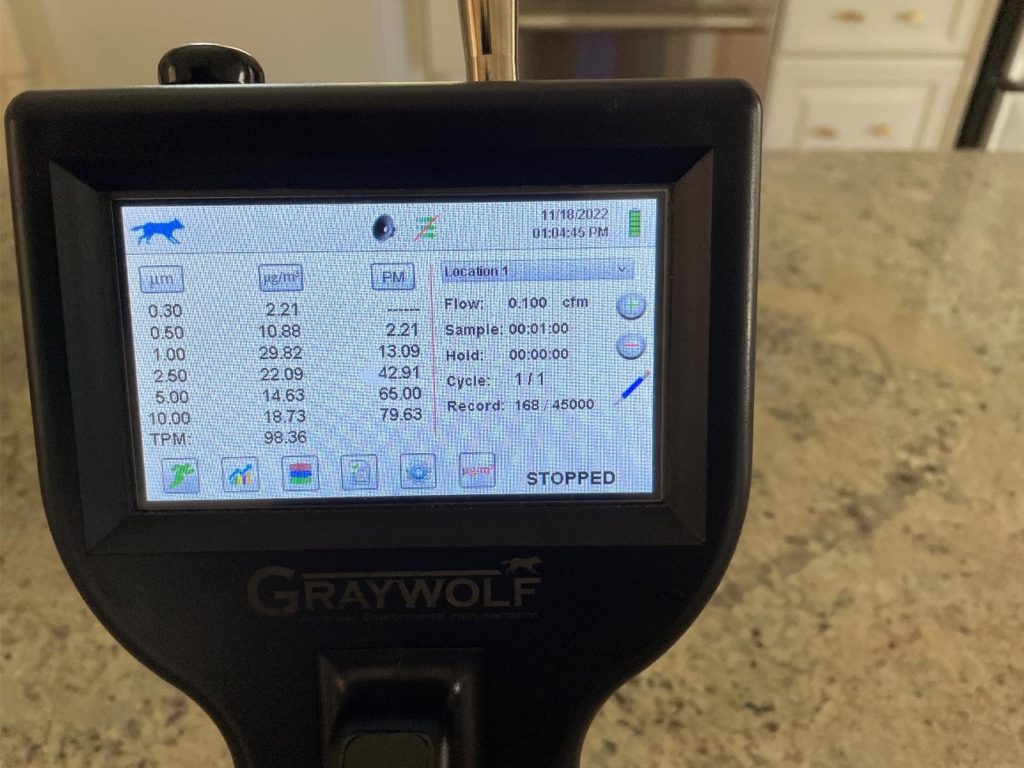
Despite being known as a more environmentally-friendly way to heat a home, pellet stoves do emit pollution via fine dust and particles. They are much cleaner than wood stoves, but the dust that they do emit is ultra-fine and can easily be inhaled, thus causing problems for vulnerable groups of people. In fact, pellets are known to transmit 15 times more particulate matter than oil heating options while emitting up to 1800 times more PM than gas heat sources. Infants and people with bronchitis, asthma, or lung conditions are among the highest-risk populations for exposure to these particles.
Health Problems Associated with Pellet Stove Emissions
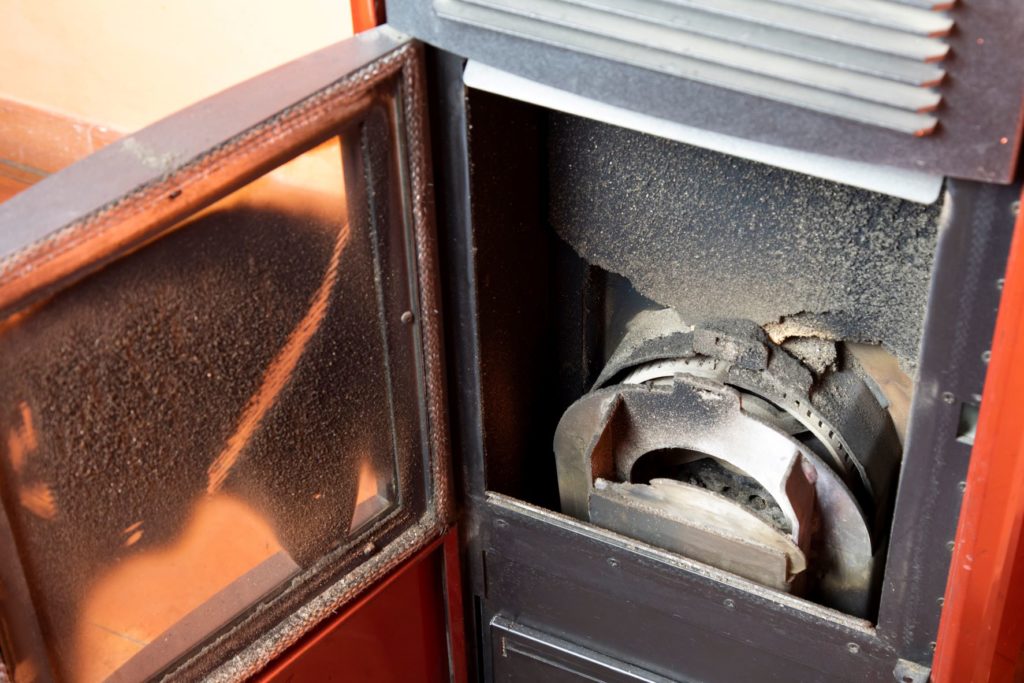
If you live in a house that relies on a pellet stove and have noticed that you or another family member are experiencing any of the following symptoms, particulate matter from the pellets could be the culprit.
Those who already suffer from chronic health conditions may notice worsened symptoms or problems like:
- Chest pains
- Palpitations
- Worsened coughing
- Extreme difficulty breathing
- Heart attack
- Arrhythmia
Over years of prolonged exposure, the fine dust and particles emitted from pellet stoves can even lead to:
- Some cancers
- Chronic lung disease
- Heart disease
- Dementia
- Premature death
Furthermore, pellet stoves have been known to slowly increase carbon monoxide levels within the home, leading to serious health problems and even death.
Testing for Pellet Stove Emissions
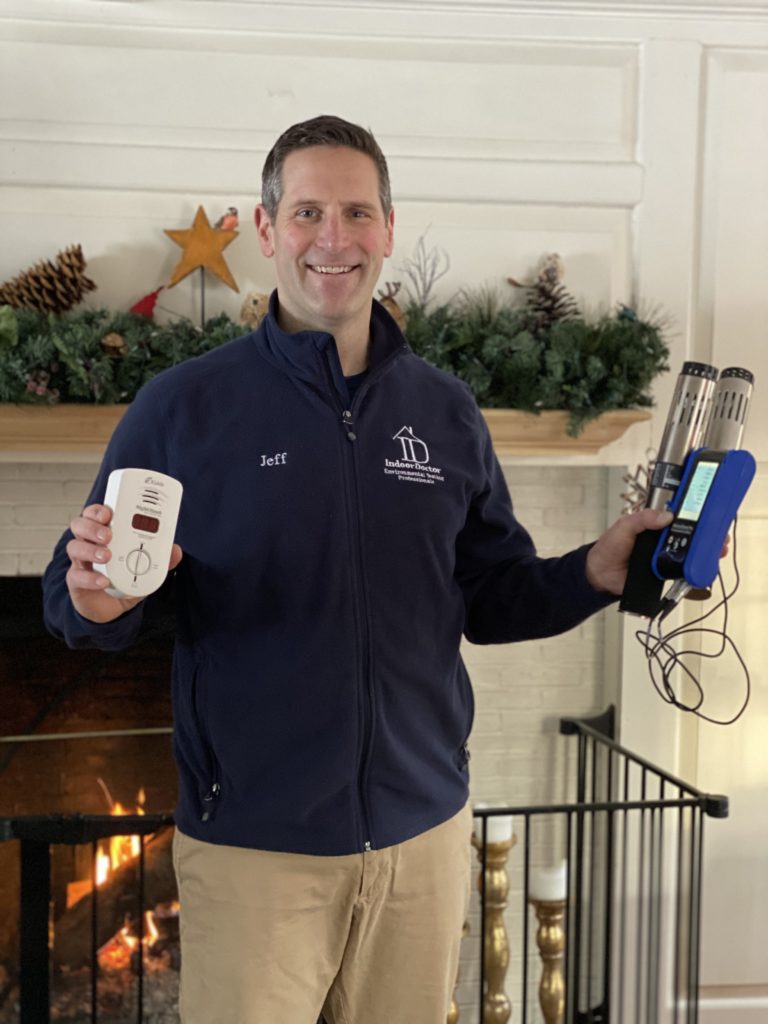
One of the smartest ways to protect yourself and your family is to hire a pro to test your home for particulate matter in the air. Indoor Doctor can detect pellet emissions, including particulate matter at 0.3, 2.5, and 10.0-micron levels, as well as carbon monoxide. Performing testing is the only way to know for sure if your home is being polluted by fine dust from your pellet stove. Knowing this is important so you can:
- Protect your family: Often, family members suffer from chronic health issues without understanding why. When you test for emissions, you can begin to understand the
underlying causes of your issues so that you can improve your health and quality of life. - Mitigate risk: Becoming aware of emissions generated by your pellet stove will let you
know that there is potentially something wrong with your ventilation system. This
empowers you to take corrective and preventative measures. - Inform your doctor – The more information you have about your health problems, the
more your doctor can provide you with the correct treatment.
Protect Your Home from Pellet Stove Emissions
Pellet stoves can certainly create problems with your air quality and health, but that doesn’t mean you have to rip your stove out of your house. Here are a few steps to staying safe: Stove inspections and maintenance: After installation or before moving into a home with a pellet stove, have the unit inspected for correct ventilation. Be sure to properly care for and maintain your stove and ventilation system.
- Carbon monoxide detectors: Whenever you’re using a pellet stove, your home should be equipped with a reliable carbon monoxide detector. Be sure to test your detector’s batteries regularly to ensure ongoing coverage and protection.
- Professional IAQ Testing: Hire a professional to check your indoor air quality (IAQ) regularly. This will alert you quickly if there are potential issues with your stove or problems with ventilation that need to be addressed immediately.
- Virtual Testing: If it’s not possible for you to hire someone for an on-site inspection, we recommend scheduling a virtual walk-through appointment. Indoor Doctor will send you the equipment you need to assess your home’s IAQ. We’ll walk you through the process on Zoom, help you to collect samples, and then will provide our recommendations for how to improve conditions within your home.
Are you nervous about your home’s indoor air quality and feel that your pellet stove could be the issue? Schedule a visit with Indoor Doctor to check things out today.



